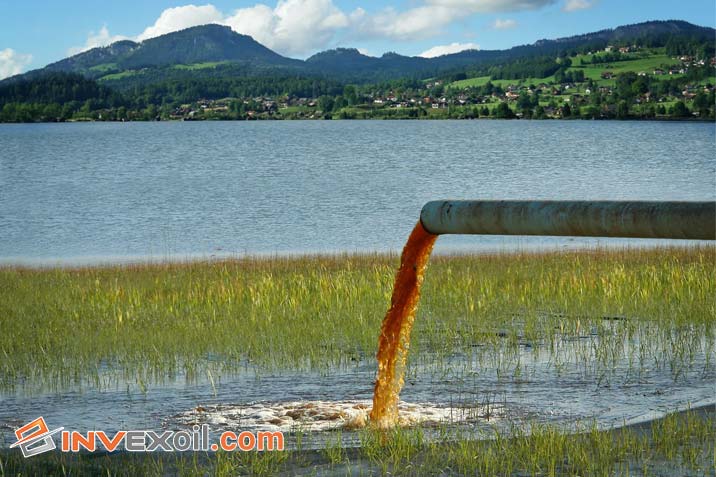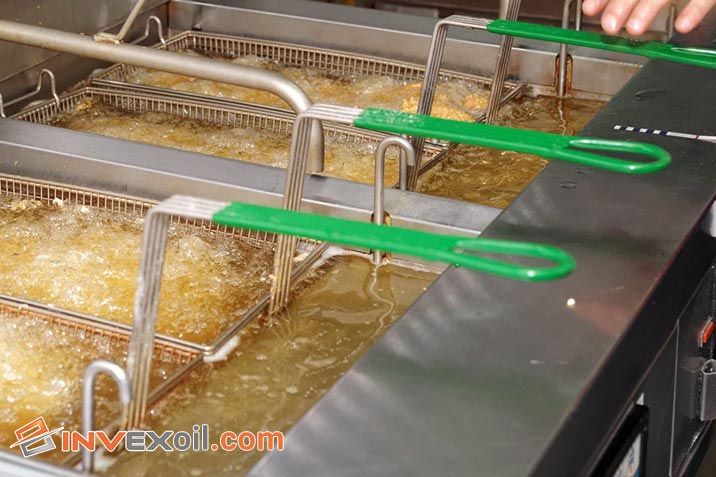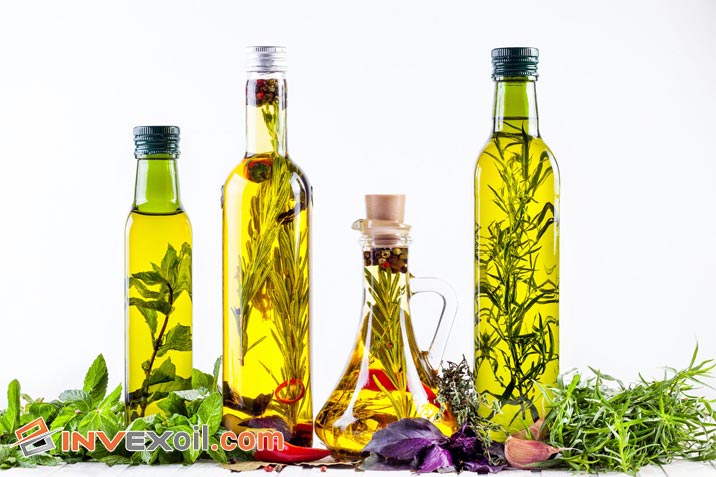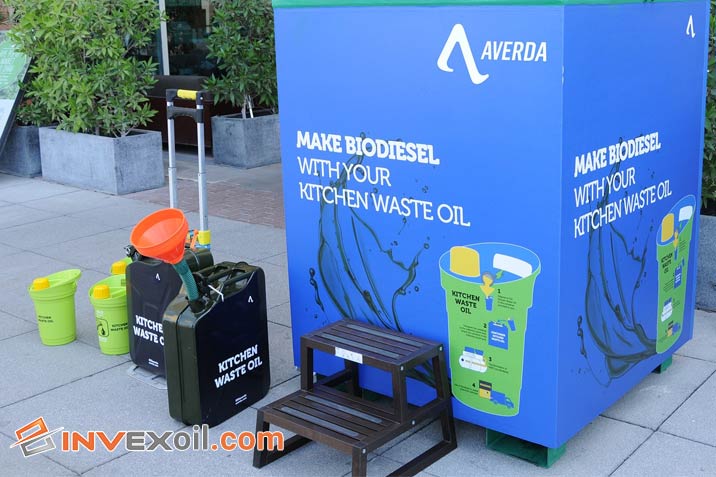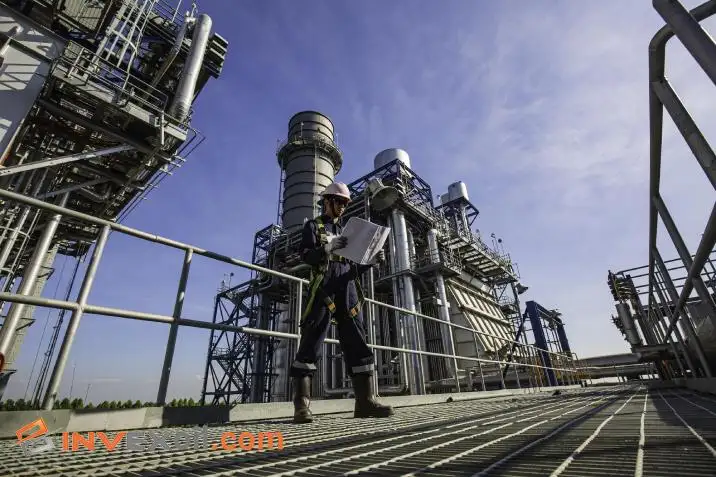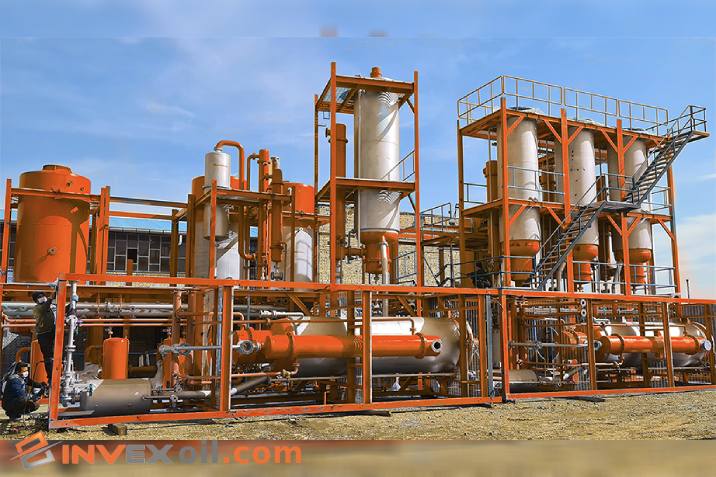In the age of technology and helping the environment, it is crucial to focus on any kind of pollution. To have better conditions, we have to know more about used cooking oil, and how can used oil re-refining recycle it. In this article, we use credible sources such as scientific journals, environmental organizations, and government reports to illustrate the importance of discussing this issue. The Cooking oil environmental impact is undeniable. It is a large threat, to water and air to soil pollution. The first step is to recognize this issue into find solutions.
Table of Contents
Used Cooking Oil Effects on the Environment
When it comes to the Cooking oil environmental impact, it’s important to find the scope of the problem. Then we are going to understand various ways in which used cooking oil can harm our environment.
-
Water Pollution and Used Cooking Oil
It’s a serious problem when cooking oil pollutes the water. When you pour that leftover oil down the drain, it doesn’t disappear. That used cooking oil usually finds its way into our waterways where it pollutes them.
Environmental Impact Factors:
| Environmental Factor | Impact |
| Water Quality | Degradation |
| Aquatic Life Disruption | Harm to Ecosystems |
| Human Health Implications | Contaminated Water Supply |
Used cooking oil can easily change water quality, and also it can disable normal life and ecosystems. This change also is not good for humans. They potentially impact human health if they find a way to human water supply and water sources. These are the real-world consequences we must be concerned about them.
-
Air Pollution and Emissions
Used cooking oil doesn’t just affect water; it also is an important player in air pollution. When it’s disposed of improperly, emissions are released into the atmosphere, contributing to reduced air quality and polluting it.
Air Quality Impact:
| Emissions Type | Impact |
| Particulate Matter (PM) | Respiratory Problems |
| Volatile Organic Compounds | Smog Formation |
| Greenhouse Gas Emissions | Climate Change |
The data show us to immediately help the environment and recycle any type of used oil.
Disposal Methods and Recycling of Used Cooking Oil
It’s important to be careful how to properly dispose of used cooking oil. As well it’s also necessary to think about how our choices affect the environment. Here are some ways to lose used cooking oil, from proper disposal to recycling and other creative ideas. It’s important to choose only the best way to protect our planet.
Comparison of Cooking Oil Disposal Methods:
| Method | Environmental Impact | Benefits |
| Recycling | Minimal | Repurposed for useful products |
| Authorized Collection Centers | Low | Controlled disposal, energy generation |
| Landfill | High | Soil contamination, methane production |
| Pouring Down the Drain | Very High | Water pollution, ecosystem disruption |
-
Proper Disposal Techniques for Used Cooking Oil
When we talk about disposing of used cooking oil, recycling must be in the lead of any choices. Recycling has many job opportunities and also gives used oil a second life. If recycling isn’t an option, we can as well collection centers for controlled disposal and use them for many purposes like generating energy.
However, the worst route is pouring oil down the drain or sending it to the landfill, both of which carry many harmful consequences.
The Benefits of Recycling Used Cooking Oil
The benefits of recycling used cooking oil aren’t just an eco-friendly gesture; it’s a tool to create something really special. It is also known as Game-Changer!
-
Environmental Impact:
It is important to recycle as much as possible so that pollution is minimized and landfills are not overburdened.
-
Biodiesel Production:
As a cleaner alternative to conventional diesel fuel, cooking oil can be converted into biodiesel, a renewable fuel that is made from used cooking oil.
-
Soap and Detergent:
As well as being used for the manufacture of soaps and detergents, the oil can also have a useful life on its own.
-
Animal Feed:
You can even use it as a feed ingredient for animals in some cases.
Alternative Uses for Used Cooking Oil
If we pass the recycling and we can’t do it anymore(with any purposes like economical, environmental and etc.), moreover we can use the used cooking oil in alternative situations like:
- Bioenergy
- Lubricants
- Candle Making
- Art Supplies
Recycling Statistics:
| Recycling Method | Recycling Rate | Environmental Benefits |
| Biodiesel Production | 85% | Reduced greenhouse gas emissions |
| Soap and Detergent Making | 10% | Less waste in landfills |
| Animal Feed Production | 5% | Resource conservation |
These numbers speak to us. Recycling used cooking oil has a high success rate, reducing greenhouse gas emissions, lessening landfill waste, and conserving valuable resources. If the government or companies want to invest in the future, they can focus on recycling and reusing used cooking oil as well.
How Valuable is Used Cooking Oil?
Is used cooking oil valuable? If yes, how much? If you think of a small amount of used oil, you can understand the value of this liquid gold! To reuse and recycle them, there are many laws that they are against wasting used oil. It’s not just wasting some oil; it’s a resource waiting to be tapped.
Value-Added Products:
| Product/Industry | Application | Benefits |
| Biodiesel Production | Fuel for Transportation | Reduced reliance on fossil fuels |
| Soap and Detergent Manufacturing | Cleaning Products | Sustainable ingredients for eco-friendly goods |
| Animal Feed | Livestock and Poultry Nutrition | Utilizing a waste product for nutrition |
| Candle Making | Candle Manufacturing | Eco-friendly and sustainable candle material |
| Art Supplies | Painting and Crafting Materials | Creativity meets sustainability |
1-Making Biodiesel from Used Cooking Oil
As a matter of fact, you can make biodiesel from used cooking oil, which is used in many kinds of vehicles. This ability can help us use less fossil fuels, which means it will produce fewer harmful greenhouse gases. It’s a good thing for the environment and for making energy. Plus, it can create jobs and opportunities.
2-Using Used Cooking Oil in Soap and Detergent
Ever wonder what’s in your cleaning products? Well, using old cooking oil in making soap and detergent is a sustainable choice. This kind of raw material is a way to get materials that keep coming back, and it helps make eco-friendly cleaning products.
3-Animal Feed
It may surprise you, but used cooking oil can get into livestock and poultry diets. As a nutritious component of animal feed, it offers a sustainable alternative to conventional feed ingredients, making efficient use of a waste product.
4-Candle Making
For those inclined towards crafting, used cooking oil can be repurposed into eco-friendly candles. It’s a creative way to reduce waste and create sustainable, homemade lighting solutions.
5-Art Supplies
In order to make a difference in the sustainability movement, even artists can get involved. The cooking oil can be used to make art supplies like paint that can be used in the kitchen. This not only sparks creativity but also minimizes waste.
Conclusion
we’ve understood many environmental impacts of used cooking oil. These impacts directly affect water and air pollution. However, we’ve learned that there is a powerful potential for recycling and repurposing it.
FAQ
What are the primary environmental impacts of using cooking oil?
Used cooking oil can lead to water pollution, air pollution, and soil contamination if not properly managed.
How can used cooking oil be recycled or repurposed to minimize its environmental impact?
Used cooking oil can be recycled into biodiesel, used in soap manufacturing, or even turned into animal feed, reducing waste and environmental harm.
Are there regulations in place to address the environmental impact of used cooking oil?
Yes, many regions have regulations and guidelines for the proper disposal and recycling of used cooking oil to mitigate its environmental effects.

Hello, This is Matteo Hudson Copywriter from InvexOil. We are here to provide super-important content to help you learn more easily and be involved in the world of Petroleum and Chemistry. We are here to answer your questions, help you to have better services, and also find the best solution for your problems. Don’t be shy and ask your questions in the comment box or call our number. If you want to connect with me directly, you can search for my name on Linkedin.

